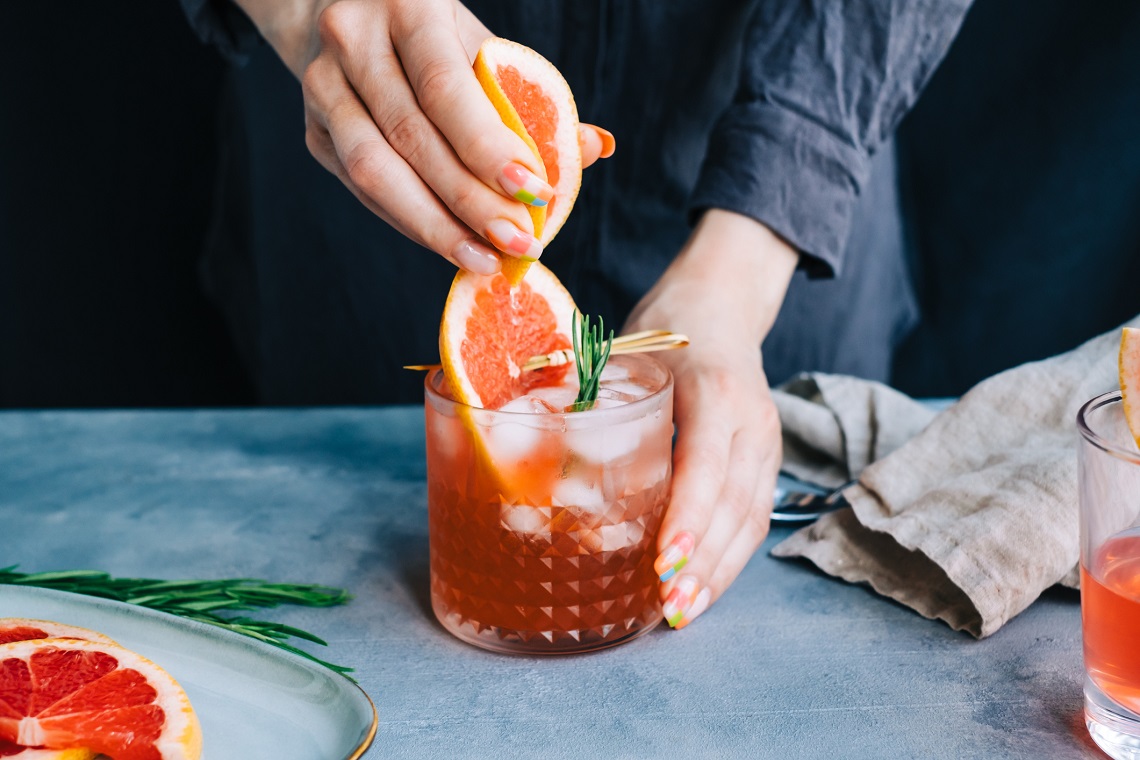By Charlotte Cowan, The Shout New Zealand
Want to know what beverage trends will emerge in the coming year? The “2023 Future of Drink” report from Datassential features all the top sippable beverages you’ll see in 2024, including these 12 “mega-trends”.
Cross-over creations
The first rule of 2024 beverage trends is that there are (fewer) rules according to Datassential. Hard soda, wine cocktails and whiskey seltzer are blurring the lines of the traditional categories. Wine cocktails rank the highest in awareness among these trends, but options like tea-based alcoholic beverages, cannabis/THC-infused beverages (in the US) and spiked coconut water are sparking consumer interest.
Tech-forward tipples
Technology advancements continue to reshape alcoholic beverages and the experience of drinking them, such as fast liquor, where spirits like whiskey or rum are aged in just a few weeks using a scientific combination of heat and light, but taste like those aged for decades.
Sober curious
Consumers are increasingly turning to alcohol-free and reduced alcohol offerings in a movement often called “the new sobriety.” It emphasises being more intentional with drinking and taking time to explore the health and mental benefits of drinking less – or not drinking at all. Nearly half of consumers (49%) are interested in low-alcohol cocktails and 45% of consumers are interested in craft “mocktails” and CBD-infused beverages, respectively.
Latin American libations
Spirits, liqueurs and cocktails from Central America, South America and the Caribbean are gaining traction with consumers. From smoky mezcal to sweet, complex falernum (a Caribbean syrup of lime and spice, either alcoholic or not), Latin American cocktail trends are ones to watch.
Asian refreshments
Alcoholic beverages from Japan, China, and India to South Korea, Taiwan, and beyond are making their mark. While sake is fairly well established, Japanese whiskey has increased in popularity in recent years and paved the way for whiskeys from other parts of Asia to begin to shine. And distilled beverages like Shōchū from Japan and Soju from Korea are also making their mark.
Sensory experiences
Operators are seeking to wow customers with drinking experiences that touch on all five senses. Some over-the-top cocktails surprise customers by incorporating unexpected elements, like fire, dry ice, and ingredients that change colour as you drink. In this category, consumers are most interested in cocktails that are colorful, infused with herbs or flowers or those that have a flaming element.
Growing grapes
Wine trends have been some of the strongest post-pandemic, with many growing in consumer interest – including wines from unique areas. Sparkling red and better-for-you wine, like low-carb or low-sugar, are also gaining consumer interest. Overall, consumers are most interested in natural and dessert wines, followed by wines from unique growing areas.
Sweet swills
Calling all sugar lovers! Many new and trending alcoholic beverage offerings tap into consumers’ love of sugar including dessert-inspired wines and beers, sodas for grown-ups, and the addition of alcohol to items like desserts and jelly. Items like boozy frozen desserts and dessert wines already have a lot of consumer awareness and interest, but boozy treats like pastry stouts and “milkshake” IPAs are also increasing in awareness and interest.
Better-for-you beverages
This category overlaps with some others on this list, but it’s worth saying again to underscore the power of consumer interest in drinks that are perceived as healthier, have less sugar or fewer calories. This important segment includes natural wine and low-calorie/carb beer and cocktails, but also interesting takes on better-for-you drinks like functional sodas and detoxifying cocktails.
Sparkle & shine
These drinks bring the party. Fizzy, sparkling, and carbonated drinks are popping across all alcoholic beverage categories. From unique sparkling wines and wine seltzers to alcoholic tonic waters and extra high-ABV seltzers, there’s been a continued “spike” in this area. Larger format sparkling teas are a non-alcoholic way to toast to the trend and celebrate with a festive wine bottle.
Format flexibility
Boosted by COVID and the need for portable off-premise offerings, consumers are looking for alcohol in non-traditional formats and from new venues. For example, the shift to off-premise and DIY during the pandemic meant more canned and bottled cocktails, portable cocktail kits, and make-your-own cocktail kits. At the other end of the spectrum, menu-free beverage programs offer a high level of service and customisability.
Sustainable sips
Sustainability is increasingly on consumers’ minds, and there are a growing number of beverage options that consumers can feel good about. Sustainable beverages can include those that are produced in a way that has less impact on the environment, have sustainable packaging, or those made with wild yeast or heirloom grain. In the early trend stage but relatively high in consumer interest are also options like upcycled spirits and wine or zero-waste bar programmes.
For more from Datassential, click here.

